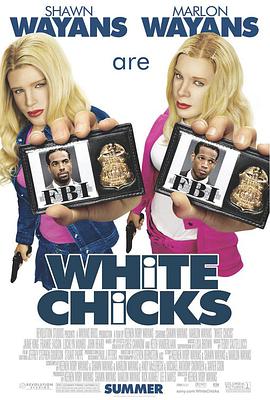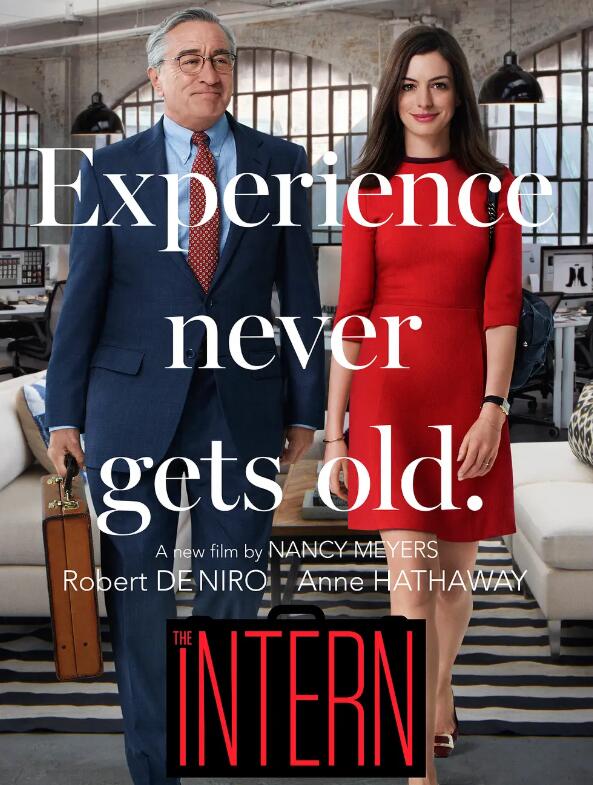- 西瓜云1
- 弥天大谎 2018

弥天大谎
- 主演:
- 格兰特·迪克森
- 备注:
- 类型:
- 纪录片
- 导演:
- 格兰特·迪克森
- 年代:
- 2018
- 地区:
- 新西兰
- 语言:
- 英语
- 更新:
- 2024-01-18 11:10
- 简介:
- 一名新西兰男子在心脏病发作后发现植物性饮食对健康有益。...详细
一名新西兰男子在心脏病发作后发现植物性饮食对健康有益。
Feminine enmity seethes in Edmund Goulding’s THE GREAT LIE, but audience knows the titular lie all the way through this rip-snorting melodrama: days after their matrimony, Peter Van Allen (Brent) reported missing in an aviation mission over Brazil, which leaves his wife, southern belle Maggie Patterson (Davis) devastated, when she discovers Peter’s old flame, pianist Sandra Kovak (Astor) is pregnant with his baby, she convinces her to leave the baby to her, on the pretext of preserving Peter’s bloodline. So the lie is that the baby is not hers but Sandra’s, which would not matter since the two women have negotiated a consensual arrangement for it. But by a well-expected quirk of fate, Peter survives his (off-screen) ordeal and returns home, Maggie couldn’t brave herself to tell him the truth, not until Sandra backtracks on their deal when she seizes this opportunity to win him back, Peter, such a dreamboat, the plot roils and thickens, sparks fly.
Totally submitted to the patriarchal hegemony, THE GREAT LIE high-handedly assigns Peter the onus of calling the final shot, as both women are hopelessly in love with him and completely as his beck and call. Maggie doesn’t contend that she doesn’t do anything wrong, because the “lie” actually is a perfect arrangement before this miraculous but corny turn-up for the books materializes, her indecision only betrays an deep-seated sense of insecurity in this relationship, if she levels with him on the spot, there will be no chance for Sandra to rock the boat. So thematically, THE GREAT LIE isn’t the most progressive work with regards to the portrayal of women, but it is downright on the strength of two actresses’ high-octane performances that this regressive treacle hasn’t fallen into oblivion, conversely, it makes quite an absorbing first-viewing.
First thing first, it comes as a pleasant change to watch Ms. Davis cedes her fierce aggression and superiority, and settles for a less showier character, Maggie is a solitary figure living in a southern mansion encircled only by her stalwart servants (Hattie McDaniel’s Violet amps up several decibels in her mammy stereotype, bringing Maggie under her umbrella so devotedly, she is the only one who is capable of rapping Peter on the knuckles like nobody’s business), worshipping and moony for Peter, for once, sympathy occupies the lion’s share of her tentative, calculated, but overall well-balanced gestures and elocution, even Maggie is often on the back foot when facing off Astor’s Sandra, she carries on with vim and vigor nonetheless.
Towering in her stature against a petite Davis, Astor goes for the kill in incarnating Sandra with all her fiber of a prima donna, riddled with hauteur, determination and impersonality (slapping a masseur is a telling sign of her volatile temperament), not to mention the usual dosage of jealousy and wiles. A career woman (Astor is an impressive mimic of pianist) favors a globe-trotting tour over a marriage, Sandra’s monstrosity is not without its own sadness and loneliness, especially during the time she and Maggie lie low in Arizona before her parturition, it bulks large that she is too spoiled to be co-exist with any other human being and not enough slaps in the whole world can shake her out of a paroxysm of hysteria (just give her pickles and boy she can scream!), Astor is magnificent to behold and gives an unflinchingly unsympathetic interpretation without resorting to caricature, a caldron of unpleasant forces, we do understand Sandra’s feelings and motives, it truly merits her Oscar victory, and she and Davis would have a final bout in Robert Aldrich’s HUSH...HUSH, SWEET CHARLOTTE (1964), also her silver screen curtain call.
Sandwiched between these two show-stopping women, George Brent’s Peter is amicably laidback, bland yes but never a smug twerp. It is ridiculous to see, in order not to infringe the odious Hays Code, the story goes out of its way to invent an unwarranted marriage between Peter and Sandra (on the throwaway occasion that the latter is very bad with dates, she is a concert pianist for Gods sake!), so as to make her pregnancy nominally within the blessing of wedlock. Goulding is very good with his talented actresses (Davis looks great from the usual low angel), but THE GREAT LIE is congenitally ill-equipped right out of the box.
referential entries: Goulding’s DARK VICTORY (1939, 8.0/10); Robert Aldrich’s HUSH...HUSH, SWEET CHARLOTTE (1964, 7.8/10)."<>"" && "
Feminine enmity seethes in Edmund Goulding’s THE GREAT LIE, but audience knows the titular lie all the way through this rip-snorting melodrama: days after their matrimony, Peter Van Allen (Brent) reported missing in an aviation mission over Brazil, which leaves his wife, southern belle Maggie Patterson (Davis) devastated, when she discovers Peter’s old flame, pianist Sandra Kovak (Astor) is pregnant with his baby, she convinces her to leave the baby to her, on the pretext of preserving Peter’s bloodline. So the lie is that the baby is not hers but Sandra’s, which would not matter since the two women have negotiated a consensual arrangement for it. But by a well-expected quirk of fate, Peter survives his (off-screen) ordeal and returns home, Maggie couldn’t brave herself to tell him the truth, not until Sandra backtracks on their deal when she seizes this opportunity to win him back, Peter, such a dreamboat, the plot roils and thickens, sparks fly.
Totally submitted to the patriarchal hegemony, THE GREAT LIE high-handedly assigns Peter the onus of calling the final shot, as both women are hopelessly in love with him and completely as his beck and call. Maggie doesn’t contend that she doesn’t do anything wrong, because the “lie” actually is a perfect arrangement before this miraculous but corny turn-up for the books materializes, her indecision only betrays an deep-seated sense of insecurity in this relationship, if she levels with him on the spot, there will be no chance for Sandra to rock the boat. So thematically, THE GREAT LIE isn’t the most progressive work with regards to the portrayal of women, but it is downright on the strength of two actresses’ high-octane performances that this regressive treacle hasn’t fallen into oblivion, conversely, it makes quite an absorbing first-viewing.
First thing first, it comes as a pleasant change to watch Ms. Davis cedes her fierce aggression and superiority, and settles for a less showier character, Maggie is a solitary figure living in a southern mansion encircled only by her stalwart servants (Hattie McDaniel’s Violet amps up several decibels in her mammy stereotype, bringing Maggie under her umbrella so devotedly, she is the only one who is capable of rapping Peter on the knuckles like nobody’s business), worshipping and moony for Peter, for once, sympathy occupies the lion’s share of her tentative, calculated, but overall well-balanced gestures and elocution, even Maggie is often on the back foot when facing off Astor’s Sandra, she carries on with vim and vigor nonetheless.
Towering in her stature against a petite Davis, Astor goes for the kill in incarnating Sandra with all her fiber of a prima donna, riddled with hauteur, determination and impersonality (slapping a masseur is a telling sign of her volatile temperament), not to mention the usual dosage of jealousy and wiles. A career woman (Astor is an impressive mimic of pianist) favors a globe-trotting tour over a marriage, Sandra’s monstrosity is not without its own sadness and loneliness, especially during the time she and Maggie lie low in Arizona before her parturition, it bulks large that she is too spoiled to be co-exist with any other human being and not enough slaps in the whole world can shake her out of a paroxysm of hysteria (just give her pickles and boy she can scream!), Astor is magnificent to behold and gives an unflinchingly unsympathetic interpretation without resorting to caricature, a caldron of unpleasant forces, we do understand Sandra’s feelings and motives, it truly merits her Oscar victory, and she and Davis would have a final bout in Robert Aldrich’s HUSH...HUSH, SWEET CHARLOTTE (1964), also her silver screen curtain call.
Sandwiched between these two show-stopping women, George Brent’s Peter is amicably laidback, bland yes but never a smug twerp. It is ridiculous to see, in order not to infringe the odious Hays Code, the story goes out of its way to invent an unwarranted marriage between Peter and Sandra (on the throwaway occasion that the latter is very bad with dates, she is a concert pianist for Gods sake!), so as to make her pregnancy nominally within the blessing of wedlock. Goulding is very good with his talented actresses (Davis looks great from the usual low angel), but THE GREAT LIE is congenitally ill-equipped right out of the box.
referential entries: Goulding’s DARK VICTORY (1939, 8.0/10); Robert Aldrich’s HUSH...HUSH, SWEET CHARLOTTE (1964, 7.8/10)."<>"暂时没有网友评论该影片"}
Feminine enmity seethes in Edmund Goulding’s THE GREAT LIE, but audience knows the titular lie all the way through this rip-snorting melodrama: days after their matrimony, Peter Van Allen (Brent) reported missing in an aviation mission over Brazil, which leaves his wife, southern belle Maggie Patterson (Davis) devastated, when she discovers Peter’s old flame, pianist Sandra Kovak (Astor) is pregnant with his baby, she convinces her to leave the baby to her, on the pretext of preserving Peter’s bloodline. So the lie is that the baby is not hers but Sandra’s, which would not matter since the two women have negotiated a consensual arrangement for it. But by a well-expected quirk of fate, Peter survives his (off-screen) ordeal and returns home, Maggie couldn’t brave herself to tell him the truth, not until Sandra backtracks on their deal when she seizes this opportunity to win him back, Peter, such a dreamboat, the plot roils and thickens, sparks fly.
Totally submitted to the patriarchal hegemony, THE GREAT LIE high-handedly assigns Peter the onus of calling the final shot, as both women are hopelessly in love with him and completely as his beck and call. Maggie doesn’t contend that she doesn’t do anything wrong, because the “lie” actually is a perfect arrangement before this miraculous but corny turn-up for the books materializes, her indecision only betrays an deep-seated sense of insecurity in this relationship, if she levels with him on the spot, there will be no chance for Sandra to rock the boat. So thematically, THE GREAT LIE isn’t the most progressive work with regards to the portrayal of women, but it is downright on the strength of two actresses’ high-octane performances that this regressive treacle hasn’t fallen into oblivion, conversely, it makes quite an absorbing first-viewing.
First thing first, it comes as a pleasant change to watch Ms. Davis cedes her fierce aggression and superiority, and settles for a less showier character, Maggie is a solitary figure living in a southern mansion encircled only by her stalwart servants (Hattie McDaniel’s Violet amps up several decibels in her mammy stereotype, bringing Maggie under her umbrella so devotedly, she is the only one who is capable of rapping Peter on the knuckles like nobody’s business), worshipping and moony for Peter, for once, sympathy occupies the lion’s share of her tentative, calculated, but overall well-balanced gestures and elocution, even Maggie is often on the back foot when facing off Astor’s Sandra, she carries on with vim and vigor nonetheless.
Towering in her stature against a petite Davis, Astor goes for the kill in incarnating Sandra with all her fiber of a prima donna, riddled with hauteur, determination and impersonality (slapping a masseur is a telling sign of her volatile temperament), not to mention the usual dosage of jealousy and wiles. A career woman (Astor is an impressive mimic of pianist) favors a globe-trotting tour over a marriage, Sandra’s monstrosity is not without its own sadness and loneliness, especially during the time she and Maggie lie low in Arizona before her parturition, it bulks large that she is too spoiled to be co-exist with any other human being and not enough slaps in the whole world can shake her out of a paroxysm of hysteria (just give her pickles and boy she can scream!), Astor is magnificent to behold and gives an unflinchingly unsympathetic interpretation without resorting to caricature, a caldron of unpleasant forces, we do understand Sandra’s feelings and motives, it truly merits her Oscar victory, and she and Davis would have a final bout in Robert Aldrich’s HUSH...HUSH, SWEET CHARLOTTE (1964), also her silver screen curtain call.
Sandwiched between these two show-stopping women, George Brent’s Peter is amicably laidback, bland yes but never a smug twerp. It is ridiculous to see, in order not to infringe the odious Hays Code, the story goes out of its way to invent an unwarranted marriage between Peter and Sandra (on the throwaway occasion that the latter is very bad with dates, she is a concert pianist for Gods sake!), so as to make her pregnancy nominally within the blessing of wedlock. Goulding is very good with his talented actresses (Davis looks great from the usual low angel), but THE GREAT LIE is congenitally ill-equipped right out of the box.
referential entries: Goulding’s DARK VICTORY (1939, 8.0/10); Robert Aldrich’s HUSH...HUSH, SWEET CHARLOTTE (1964, 7.8/10).














